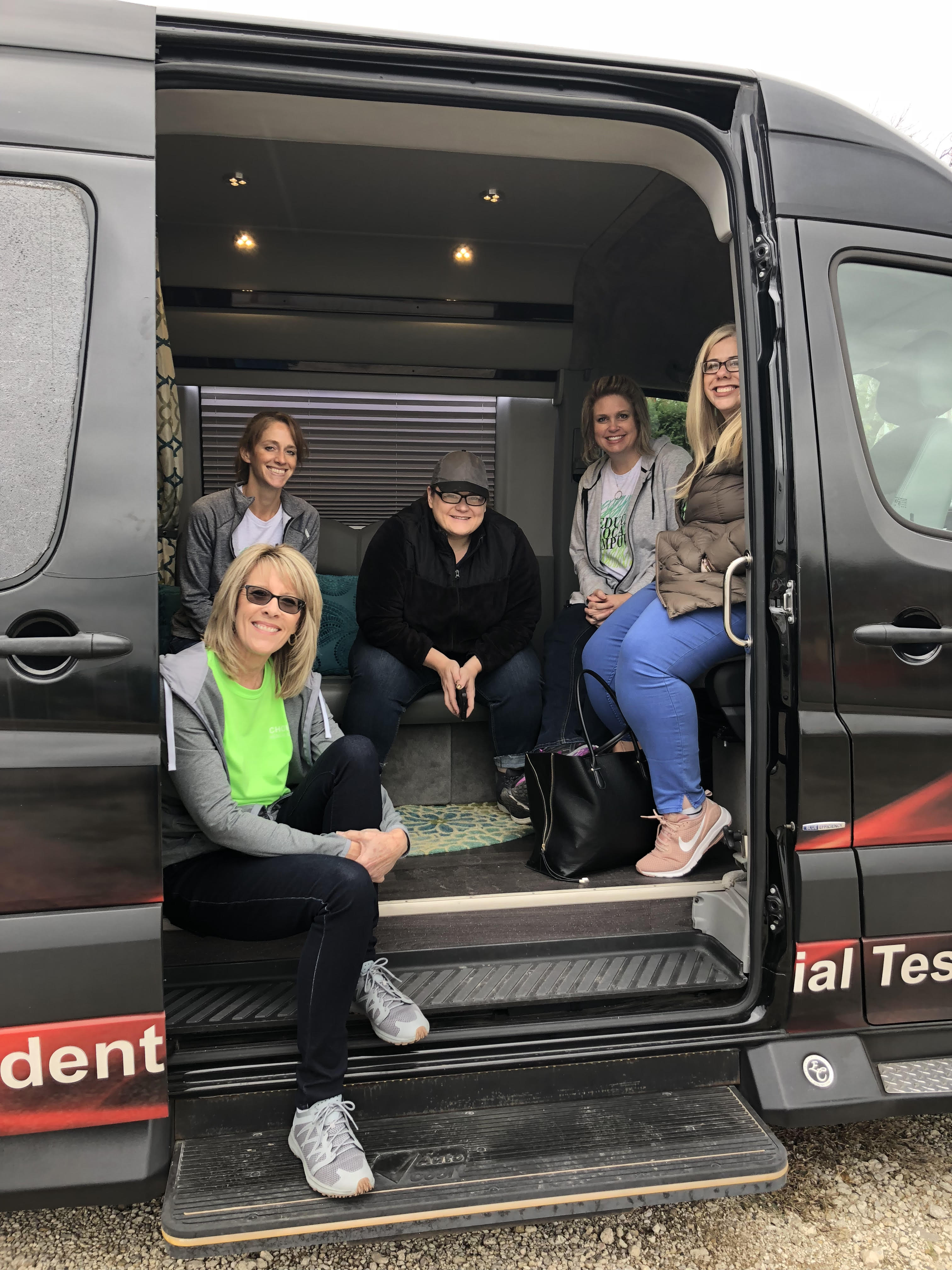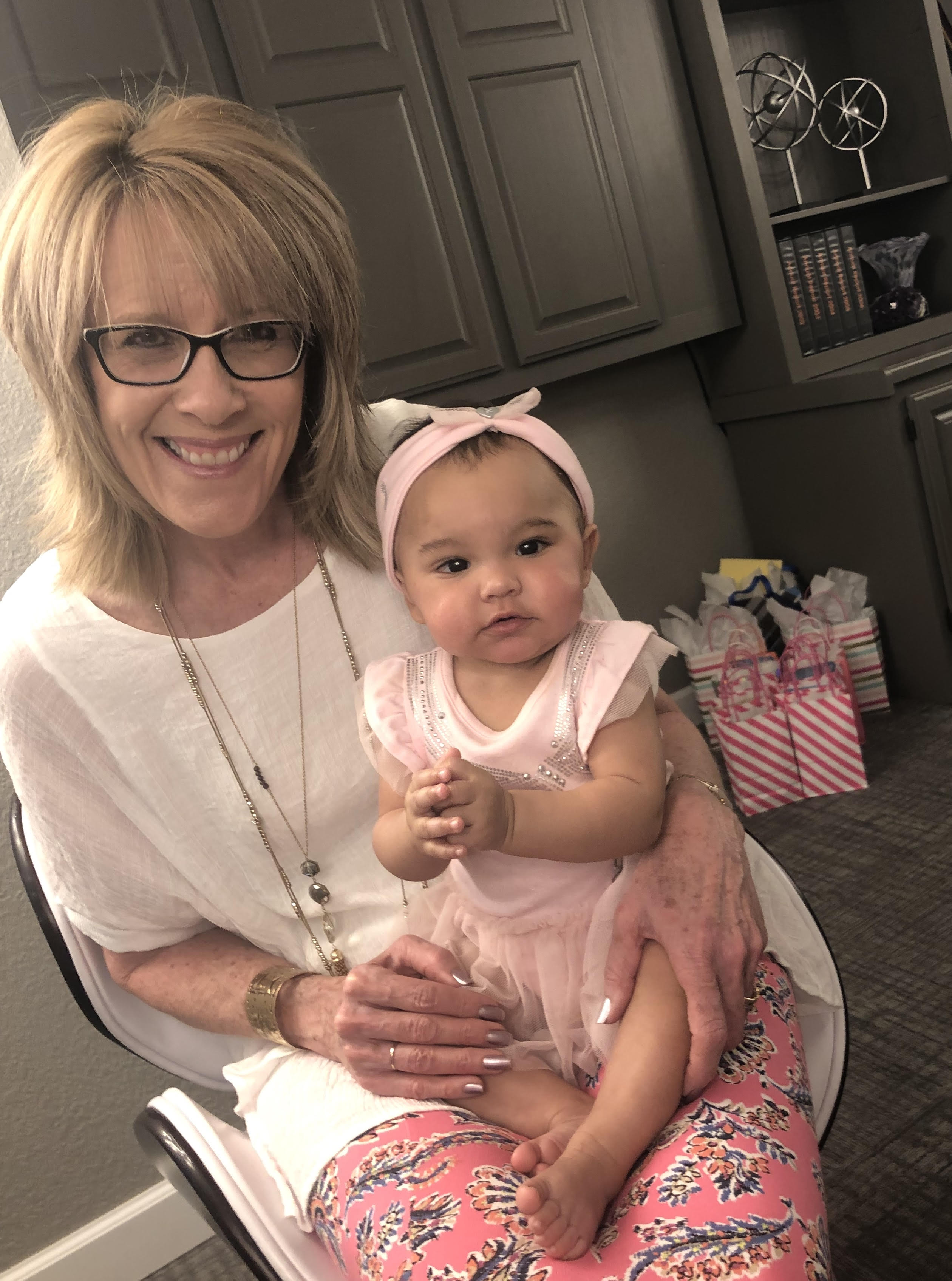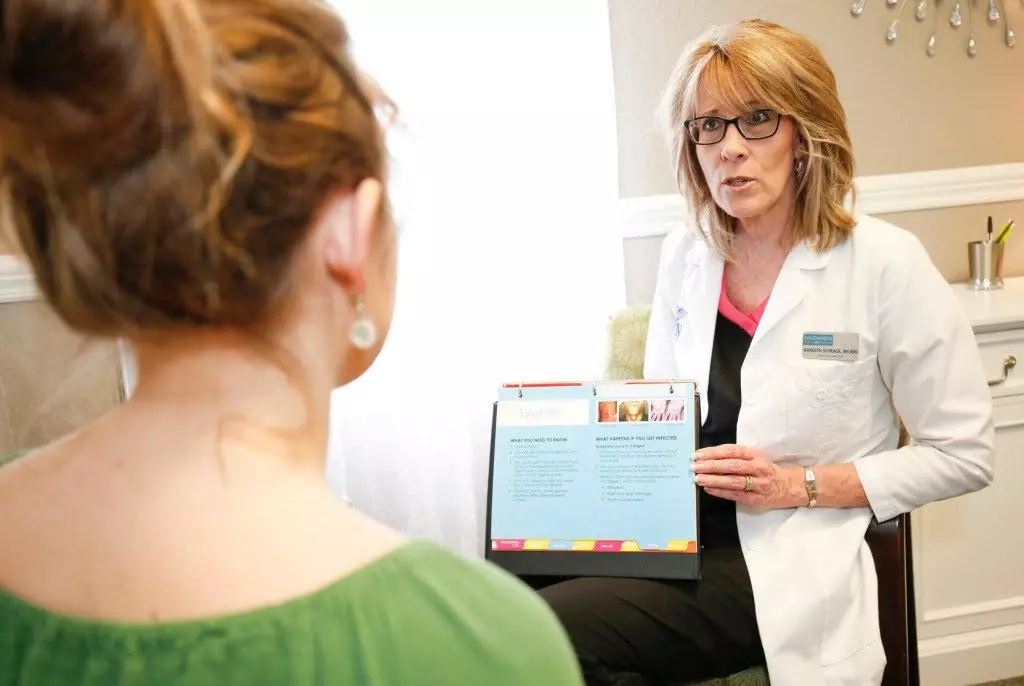“Emma” tested positive for syphilis while just 9 weeks pregnant. She knew she needed treatment but didn’t know where to turn for help. At the recommendation of several in her community, she visited Choices Medical Services clinic.
“She was given the treatment needed, given a limited OB ultrasound and scheduled an appointment to get into full prenatal care,” reports Executive Director Karolyn Schrage. “She was able to convince the father of the baby to also come in immediately, and he too received the vital treatment necessary.”
On another occasion, Schrage visited a local jail to conduct blood tests for nine inmates who had been exposed to syphilis. One man smiled and said, “I know you. You scanned my baby-mama.”
“When he told me her name, I instantly knew that she was one of the former adult entertainers at a local sex industry establishment,” Schrage recalled.
“The young man and I were able to have a conversation about the circumstances that had led to his current incarceration,” said Schrage. “We spoke of the path ahead and how important it was for him to stay the path to get back to his now 2-month-old son. We spoke of the importance of every child knowing the love of their father. Tears spilled down his cheeks as he thanked me for being there that day and reminding him that he had a vital reason to fight hard to get back to his family.”
Schrage has served with the LifeChoices network for 16 years and oversees two area clinics and a medical mobile unit near Joplin, Missouri. On a monthly basis, her clinics serve approximately 325 patients—many of whom test positive for STDs.
Rates of syphilis have increased 1,067 percent from 2016 to 2018 among patients visiting clinics in the LifeChoices Health network.
“Just this year first quarter we saw an additional jump of 540 percent over the first quarter last year,” says Schrage.
A few years ago, syphilis was considered nearly eradicated across the nation, but several factors have contributed to its comeback, including: limited healthcare education, lack of access to care by those in the intravenous drug use demographic and societal shame factors.
“The most common reaction is disbelief that they’ve tested positive or have been listed as an exposure to syphilis,” says Schrage. “Some believe the myth that this disease is only a ‘gay’ disease or a disease that ‘prostitutes’ get. Educating on the highly contagious skin-to-skin transmission and the ease with which this bacteria can be spread is a health-educator challenge.”
Syphilis isn’t hard to cure with appropriate medical care, but left untreated can lead to serious health complications, as well as be passed on to an unborn child. Sometimes an infected baby may be born without symptoms, but per CDC, all infected infants need immediate treatment to prevent the development of serious problems such as cataracts, deafness or seizures.
One of the best ways to help is by first showing you care.
“As with any adverse or unexpected sexual health concern, we find it is most effective to first listen to their concerns,” says Schrage. “We start by giving them an opportunity to voice their individual fears. We can then address the fears one by one. For some, it is the assurance that we can immediately provide the treatment necessary, be that injection or series of injections based on the disease stage. For others, it is the knowledge that we can also provide treatment for any partners. It is assuring the pregnant woman that her early detection and treatment will provide the protection necessary for her unborn child. In each case, we listen first and then respond with compassion, with medically accurate information and with a care plan of action that includes spiritual hope.”

Karolyn Schrage with some staff at LifeChoices | Photo courtesy of Karolyn Schrage

Karolyn Schrage with a life saved at LifeChoices | Photo courtesy of Karolyn Schrage
Through their work in the community, LifeChoices network has established themselves as a “safe-space,” allowing them to educate and offer syphilis treatment to the surrounding community via several avenues:
- Participating in health fairs at casinos, businesses, universities, and schools
- Offering on-site testing at domestic violence shelters, homeless shelters, and rehab facilities
- Visiting college campuses
- Providing services to men and women in county jails
- Opportunities to underwrite Mixed Martial Arts cage fighting and provide testing for participants
- Receiving referrals from the health department, Planned Parenthood, the Department of Health (state level), and the Sexual Assault ER after-care plan
“Holistic healthcare through a physical, emotional and spiritual systemic approach allows a culture of genuine care that communicates to a community we care, and we will not be gender-biased, judgmental nor politically motivated,” says Schrage.
LifeChoices Network seeks to make a difference in the syphilis epidemic in Missouri, even garnering nationwide attention through news media outlets such as CNN, but more than that Schrage says, “Our vision is that anyone who is facing a sexual health concern will come to the Choices Medical Services Clinic and be received by a team of compassionate professionals that are forever fueled by the passion of our Lord. We pray that the relationships built through a sexual crisis, be that an unplanned pregnancy, sexually transmitted infection, or sex trafficking recovery, will go beyond the symptom of the moment to a life-long road of complete restoration in Christ.”
Individuals and groups can help the LifeChoices Network through prayer, monthly financial support, and various volunteer opportunities. Learn more by visiting: www.choicesmedical.org








